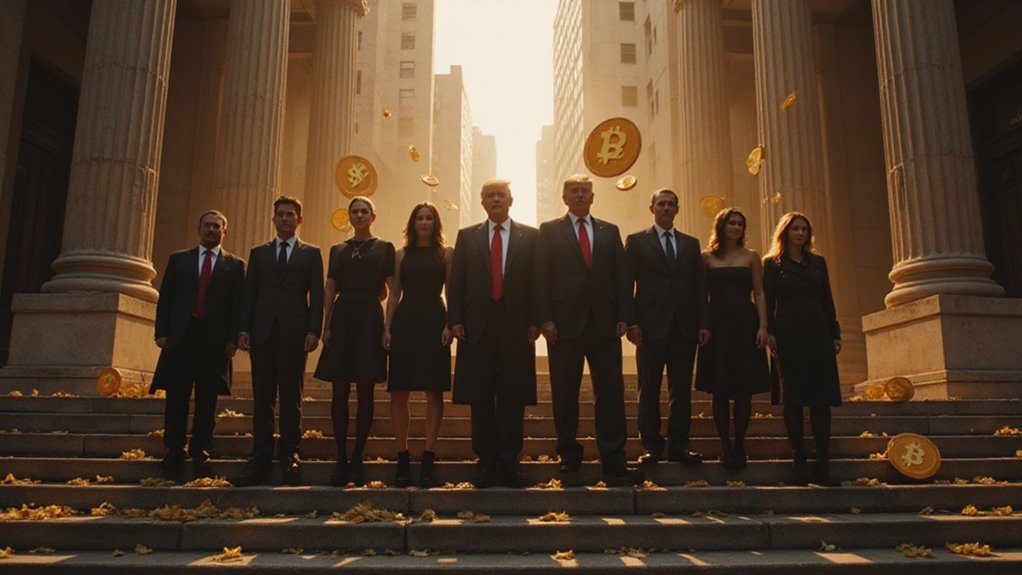A curious financial innovation has emerged from Republic, the crowdfunding platform, which has devised a method to offer retail investors exposure to SpaceX—and potentially OpenAI—without requiring the cooperation of either company. The mechanism involves issuing tokens (dubbed rSpaceX) that track private share performance while sidestepping traditional equity ownership entirely.
Republic’s structure leverages investment contracts rather than direct equity stakes, allowing investors to gain exposure to SpaceX’s valuation movements without actually owning shares or receiving shareholder rights. Each token’s price correlates with secondary market valuations of SpaceX shares, fundamentally creating a derivative instrument that mirrors private equity returns.
Republic’s tokenization model creates derivative exposure to private equity returns while bypassing traditional share ownership and governance rights entirely.
The approach exploits regulatory provisions from the 2012 JOBS Act, specifically Regulation Crowdfunding, which permits up to $5 million annually in retail crowdfunding offerings. The democratization aspect proves particularly striking: minimum investments start at $50, with annual caps of $5,000 per investor. This fractionalization transforms traditionally exclusive private equity exposure into retail-accessible products, though investors receive neither voting rights nor financial disclosures—a trade-off that raises intriguing questions about informed investment decisions.
After a mandatory one-year lockup period, tokens become tradeable on INX, an alternative trading system Republic is acquiring. This creates liquidity for otherwise illiquid private equity exposure, though the synthetic nature of the investment remains. Unlike established exchanges such as South Korea’s Upbit which offers access to over 200 digital assets, Republic’s tokenized offerings represent a more specialized approach to digital asset investment. Investors benefit from share price appreciation and potential cash payouts during liquidity events (public offerings or acquisitions), but receive no dividends or corporate governance participation.
The regulatory landscape presents both opportunity and risk. While Republic’s structure aims to comply with existing securities regulations, the novelty of tokenizing private company exposure without corporate cooperation invites potential scrutiny. The classification as investment contracts attempts to navigate these waters, though regulatory clarity remains evolving. The evolving regulatory framework poses ongoing challenges as authorities work to establish compliance standards for digital assets and tokenized securities.
Republic’s model could catalyze broader tokenized investment markets for high-profile tech companies, challenging traditional private equity gatekeeping. The real-world asset tokenization market has already reached $24 billion by mid-2025, indicating growing mainstream acceptance of such financial products. The initiative introduces greater liquidity to private markets while maintaining the crucial economic exposure investors seek.
Whether this innovation represents genuine financial democratization or merely creates new complexities in retail investment access remains an open question worth monitoring closely.







